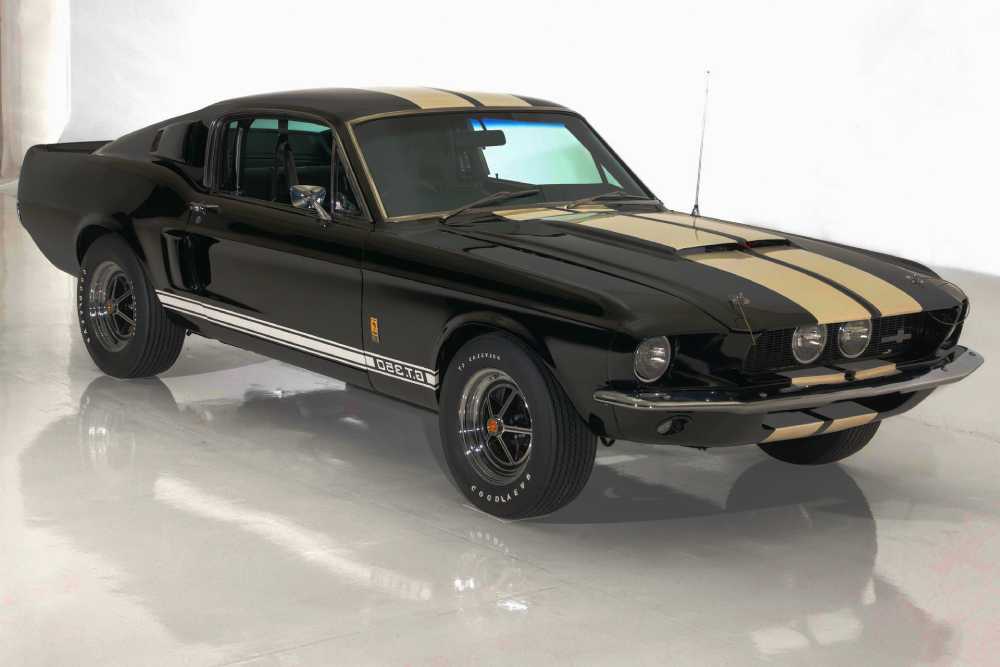When it comes to maintaining a classic car, selecting the right engine oil is paramount. Not only do these cherished vehicles embody a rich tapestry of automotive history, but they also require specific care to ensure they run smoothly and retain their value.
In this article, we delve into the essentials of classic car engine maintenance, emphasizing the importance of choosing the optimal oil. From understanding the unique needs of classic car engines to exploring the various types of oils suitable for these vehicles, we guide you through the selection process.
Plus, we present a carefully curated list of the top 7 oils that promise to keep your classic car’s engine in pristine condition. Whether you’re a seasoned collector or a new enthusiast, mastering the art of selecting the right oil is a crucial step in safeguarding your investment and enjoying the timeless pleasure of classic car driving.
Explore the best oils for classic cars, understand their engine needs, and learn how to select top oils to keep your vintage vehicle running smoothly.
Table of Contents
Understanding The Needs Of Classic Car Engines
Classic cars require special attention, particularly when it comes to selecting the best oil for classic cars. These vintage beauties were built with engine technologies that differ significantly from those found in modern vehicles, making their lubrication needs unique. The oils used in these engines not only need to protect against wear and corrosion but also ensure that gaskets and seals remain in optimal condition.
The primary concern with using modern oil in old engines is that today’s formulations typically include detergents and additives that can be harmful to older engines. These components can cause seal degradation and sludge buildup, which were less of a concern with oils formulated in the past. Therefore, understanding the specific characteristics and requirements of classic car engines is essential in choosing the right oil that will enhance performance and longevity.
When discussing oil for older cars, viscosity and compatibility come to the foreground. Classic cars generally benefit from slightly thicker oils that can create a robust film between moving parts, thereby reducing metal-to-metal contact and minimizing wear. The choice of single-grade versus multi-grade oil often depends on the typical driving conditions and climate, as well as the specific engine design.
To further understand the importance of the right choice, it’s important to consider the metallurgical aspects of engine oil for older engines. Many vintage car engines use materials and alloys that react differently to certain additives found in contemporary oils. Zinc, for example, is a crucial additive in vintage car oils because it provides an extra layer of protection for the engine components, but its level in modern oils is generally lower due to environmental regulations.
Another aspect to keep in mind is the storage and operational habits of the vehicle. Many classic cars spend a considerable amount of time parked, which can influence the type of oil for vintage cars needed. The right oil should have excellent film retention to protect the engine during long periods of inactivity and provide immediate lubrication upon startup. Overall, selecting the proper oil for a classic car is a balancing act of maintaining the engine’s original integrity while optimizing for performance and longevity under modern operating conditions.
Why Choosing The Best Oil For Classic Cars Matters
Choosing the best oil for classic cars is critical to ensuring the longevity and optimal performance of the engine. Classic cars, with their unique engineering and age, have specific lubrication needs that modern vehicles do not. This makes the selection of the right oil not just a matter of preference but a vital aspect of classic car maintenance.
First and foremost, using the correct oil preserves the engine components of classic cars, which may not be compatible with certain additives found in contemporary oils. For example, many modern oils contain detergents and other additives that can be too harsh for the materials used in older cars, leading to premature wear or failure. Therefore, the right oil for older cars must be carefully selected to match the engine’s characteristics and material compatibilities.
Another crucial factor is the oil’s viscosity. Classic cars generally require thicker oils to properly lubricate the engine as they might have larger clearances between components due to wear and tear over the years. Choosing an oil with the right viscosity ensures that the engine is protected against the rigors of operation, especially under varied temperature conditions, enhancing the vehicle’s reliability and performance.
Moreover, using the right engine oil for older engines can significantly impact fuel efficiency and emissions. Older engines were not built with the current environmental regulations in mind; however, selecting suitable oils can help minimize harmful emissions and improve fuel consumption slightly, offering not just economic benefits but also contributing to environmental sustainability.
The sentimental and monetary value of classic cars can be greatly supported by proper maintenance practices like the use of suitable oil for vintage cars. Collectors and enthusiasts often see classic cars as investments, and maintaining engine health with the appropriate oil can greatly influence resale values and the car’s lifespan. Therefore, making an informed choice in oils is an integral part of classic car ownership and enjoyment.
Types Of Oils Suitable For Classic Cars Explained
Choosing the best oil for classic cars is crucial for maintaining the integrity of their engines, especially considering the unique requirements of older engine designs. Modern advancements in oil technology have both advantages and drawbacks when applied to vintage engines. Here, we delve into the types of oils that are most suitable for these cherished vehicles.
Firstly, conventional mineral oils are frequently recommended for classic cars. These oils were originally used when many vintage vehicles were built, making them a more authentic choice for older engines. The primary advantage of mineral oils is their compatibility with the seals and gaskets of classic engines, reducing the risk of leaks often seen with the use of more modern synthetic oils. Additionally, mineral oils tend to have higher viscosity levels, which is beneficial for the looser tolerances found in older engines.
On the other hand, synthetic oils are known for their superior performance in terms of engine protection and efficiency. However, when using modern oil in old engines, it’s important to choose a synthetic oil that’s specifically formulated for classic vehicles. These specialized products prevent potential issues such as seal deterioration due to the cleansing properties of synthetic oils, which can dislodge accumulated deposits and cause leaks.
Another suitable option includes high-zinc or ZDDP-enhanced oils, which are particularly beneficial for vintage car engines. Older engines typically have flat-tappet camshafts, which entail more metal-to-metal contact than the roller camshafts found in modern engines. ZDDP additives provide an extra layer of protection against wear by forming a protective film on engine components. This feature is critical for extending the life span of engine oil for older engines.
When choosing oil for vintage cars, the age, condition, and specific engine type of the classic car must be considered. Consulting with manufacturers or professionals who specialize in classic cars can provide tailored advice that ensures both longevity and optimal performance. Remember, while many modern oils are marketed as universally compatible, there’s no one-size-fits-all solution in the realm of classic car maintenance.
How To Select The Best Oil For Classic Cars
Choosing the best oil for classic cars involves considering various factors that contribute to both the preservation and performance of the engine. Here’s how you can make an educated decision when selecting engine oil for your treasured classic vehicle.
Firstly, understand the specific needs of your classic car’s engine. Meet with or consult manuals and materials that detail the manufacturer’s specifications. Older engines, especially those which predate the 1980s, often require oils with particular viscosities and additives that are not common in contemporary formulas. This examination will help you prevent the utilization of modern oil in old engines which can lead to compatibility issues and engine damage.
Secondly, the viscosity of the oil plays a crucial role. Viscosity refers to the thickness of the oil and its flow characteristics at different temperatures. Classic cars generally benefit from thicker, higher-viscosity oils that can create a robust lubricating film. However, always align your choice with the specific viscosity recommended for your car’s engine to ensure optimal protection and performance.
Another factor to consider is the additive package in the oil. Classic cars often lack the tight engine tolerances of modern vehicles, so they need oils that can protect against rust, corrosion, and wear under less stringent conditions. Look for oils labeled explicitly for oil for older cars or engine oil for older engines, as these are formulated with anti-wear additives and are ideal for cushioning older engine components.
Decide whether synthetic or conventional oil suits your classic car best. Synthetic oils offer superior protection and durability, which can be beneficial for classics that are driven frequently or in extreme conditions. However, some older engine seals and gaskets may react poorly to synthetic oils, so in many cases, a high-quality conventional oil might be more appropriate. Whether opting for synthetic or traditional, choosing an oil with a strong reputation for quality in the classic car community, such as those specified for oil for vintage cars, will yield the best results.
Top 7 Oils To Keep Your Classic Car Running Smoothly
Choosing the best oil for classic cars is crucial to maintaining their performance and longevity. Here, we overview the top seven oils that are ideal for classic vehicles, ensuring that your vintage engine runs as smoothly and efficiently as possible.
The first recommended oil is Castrol GTX Classic 20W-50. Specially formulated for modern oil in old engines, this oil provides excellent lubrication and protection against wear and corrosion, making it ideal for oil for older cars. Its high viscosity ensures that older engines with wider clearances receive adequate oil flow to all parts.
Next, we have Valvoline VR1 Racing Synthetic 20W-50 Motor Oil. This product is not just for racing; its high zinc content makes it perfect for engine oil for older engines, providing enhanced protection against thermal breakdown and minimizing sludge and varnish formation. Thus, it’s a great choice for those who demand the highest performance from their vintage cars.
For those looking for a more modern solution, the Mobil 1 15W-50 Full Synthetic Motor Oil offers exceptional all-round protection. Its advanced full synthetic formula helps to extend engine life, even in older engine designs, making it an excellent oil for vintage cars. This oil is particularly beneficial for maintaining stable oil pressure in older engine systems.
An alternative option is Shell Rotella T4 Triple Protection Conventional 15W-40 Diesel Engine Oil, which is also compatible with gasoline engines. Known for its versatility, this oil enhances engine cleanliness and provides long-lasting wear protection, which is vital for maintaining the engine integrity of classic cars.
For enthusiasts preferring tailor-made solutions, Classic Car Motor Oil 10W-30 can be a perfect choice. Specifically designed for vintage and collector cars, it adds an extra layer of protection for lower mileage engines that require more frequent oil changes.
Selecting the right oil from these top contenders depends largely on the specific needs of your classic car engine. Each of these options ensures that your vehicle not only runs efficiently but also preserves the engine’s health for years to come.

